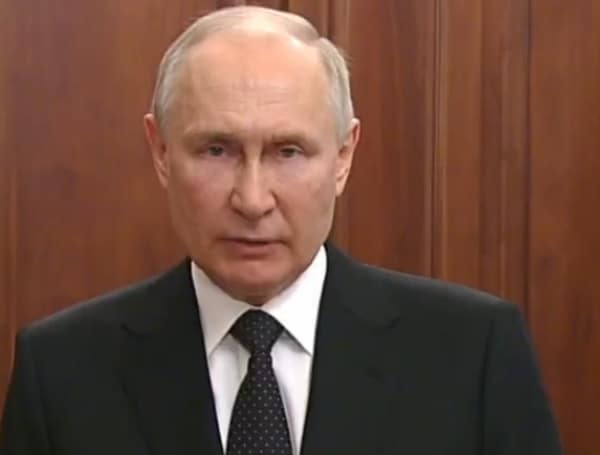Russian President Vladimir Putin is accelerating efforts to expand military-patriotic education programs targeting Russian youth and children in occupied Ukrainian territories. The initiative comes as the Kremlin prepares to declare 2025 the “Year of the Defender of the Fatherland,” aiming to bolster military service and instill patriotic sentiment across Russian society.
On December 20, Putin approved a series of government directives that include the following measures:
- Establishing a network of “military-sports camps” to encourage military enlistment among young people.
- Expanding the Kremlin’s “Roads of Victory” program, which offers free excursions to sites of Russian “military glory” for children and youth.
- Creating an online platform for organizing military-patriotic educational activities.
- Converting a children’s “health camp” into a year-round operation.
The “Roads of Victory” program is designed to foster patriotic sentiment by exposing youth to Russian cultural and historical narratives tied to military achievements. These efforts align with the Kremlin’s broader strategy to militarize youth, including the use of “Avangard” military and sports training camps to indoctrinate Ukrainian children in occupied territories.
READ: U.S. Officials Warn Of Potential ISIS Resurgence Amid Syrian Turmoil
In addition, Putin’s administration is elevating youth organizations like Yunarmiya and Movement of the First, which serve as tools for promoting military service and loyalty to the Kremlin. The “Time of Heroes” program, which places war veterans in government positions, is also part of this societal militarization strategy.
Putin’s declaration of 2025 as the “Year of the Defender of the Fatherland” underscores his intent to prioritize military and ideological initiatives. Analysts suggest this aligns with Russia’s long-term war efforts in Ukraine and preparation for potential future conflicts with Western nations.
Meanwhile, Ukrainian forces launched drone strikes on Kazan, the capital of Russia’s Republic of Tatarstan, on December 21. Footage from the incident shows drones striking large apartment buildings and other structures, reportedly after being partially disabled by Russian electronic warfare systems.
Russian authorities claimed six drones were destroyed near Kazan, one was downed over a nearby river, and another struck near an industrial site. Russian opposition media speculated the drones may have been targeting key military or industrial facilities in the area, such as a gunpowder plant, an airfield, a military base, or a helicopter production facility.
President Putin personally contacted Tatarstan’s Head, Rustam Minnikhanov, after Minnikhanov inspected the damaged residential areas. The attack highlights Ukraine’s ongoing capability to strike within Russian territory amid the protracted conflict.
READ: U.S. CENTCOM Forces Eliminate ISIS Leader In Precision Airstrike In Syria
The Kremlin’s expansion of military-patriotic programs and Ukraine’s increasing use of drone strikes reflect the evolving dynamics of the war, with both sides intensifying efforts to shape the battlefield and public narratives.
Please make a small donation to the Tampa Free Press to help sustain independent journalism. Your contribution enables us to continue delivering high-quality, local, and national news coverage.
Connect with us: Follow the Tampa Free Press on Facebook and Twitter for breaking news and updates.
Sign up: Subscribe to our free newsletter for a curated selection of top stories delivered straight to your inbox.

